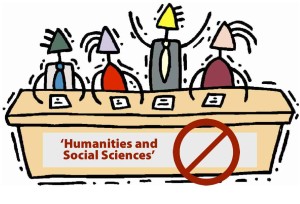- French Film Festival 2018 June 13 - 24
- Solo: A Star Wars Story
- Maze Runner: The Death Cure
- The Last Flag Flying
- Batman Ninja
- Julia Roberts and Owen Wilson play parents of a bullied child in Wonder
- Kill Switch
- All The Money In The World
- Isle Of Dogs
- Moriyama Kaiji Circus until May 27
- EU Film Days at the National Film Archive of Japan
- Nagano’s Aichi Village holds a Hanomo (Peach Blossom) Festival until May 6
- Japan’s next generation bicycle tires don’t need air
Is Japan without Humanities and Social Sciences good or bad?
 A decree issued by Japan’s Ministry of Education ordering Japan’s public universities to stop offering humanities and law, and social sciences, to align itself with the real demands of the job market, elicits mixed response among parents, schools and educators. In September last year, 26 of the 60 universities have agreed to close or gradually reduce its facilities.
A decree issued by Japan’s Ministry of Education ordering Japan’s public universities to stop offering humanities and law, and social sciences, to align itself with the real demands of the job market, elicits mixed response among parents, schools and educators. In September last year, 26 of the 60 universities have agreed to close or gradually reduce its facilities.
Mr. Takamitsu Sawa, president of Shiga University, wrote an op-ed in Japan Times expressing his disfavor of the Ministry of Education’s proposals calling it “outrageous” and “distortion of the government’s policies related to higher education by anti-intellectuals.”
We asked Mary Nobuoka, American educator in Japan, for her take on how bad or good could this be for Japan. Mary has this to say.
Education is having a harder time keeping up with the fast-paced changes in the world and the job market, but it is a mistake to think that the humanities do not contribute to creating a better society. Not only is society enriched by art, literature and music, we benefit from the perspectives that comes from researching history and philosophy and the critical thinking skills that come from analyzing and synthesizing material in the human sciences. Studying the humanities helps us learn how to think rather than what to think.
Unfortunately, the so-called “war on humanities” is not new nor is it unique to Japan. The USA and UK have already cut funding and greatly reduced humanities programs in favor of science, technology, engineering and math (STEM) programs. Indeed, the USA is facing a “science crisis” and needs to promote STEM programs. However, this should not be to the detriment of the humanities, and fortunately Tokyo and Kyoto Universities have pledged to keep their humanities programs intact.
The good news for Japan is that children in the Japanese primary school system are receiving a rich education in art, music and literature while also receiving a high level of education in mathematics and science. According to the OEDC international Survey of Adult Skills, Japanese adults greatly out-scored their international peers on tests of literacy, numeracy and problem solving in technology-rich environments. Policy recommendations for lower-scoring countries are to improve primary and secondary humanities education.
Without the humanities, societies may produce more workers who can design drones or push the boundaries of science and medicine, but few will be able to consider or debate the moral consequences of these actions or the results that they bring. Both STEM and humanities programs should be supported by the government and society.

